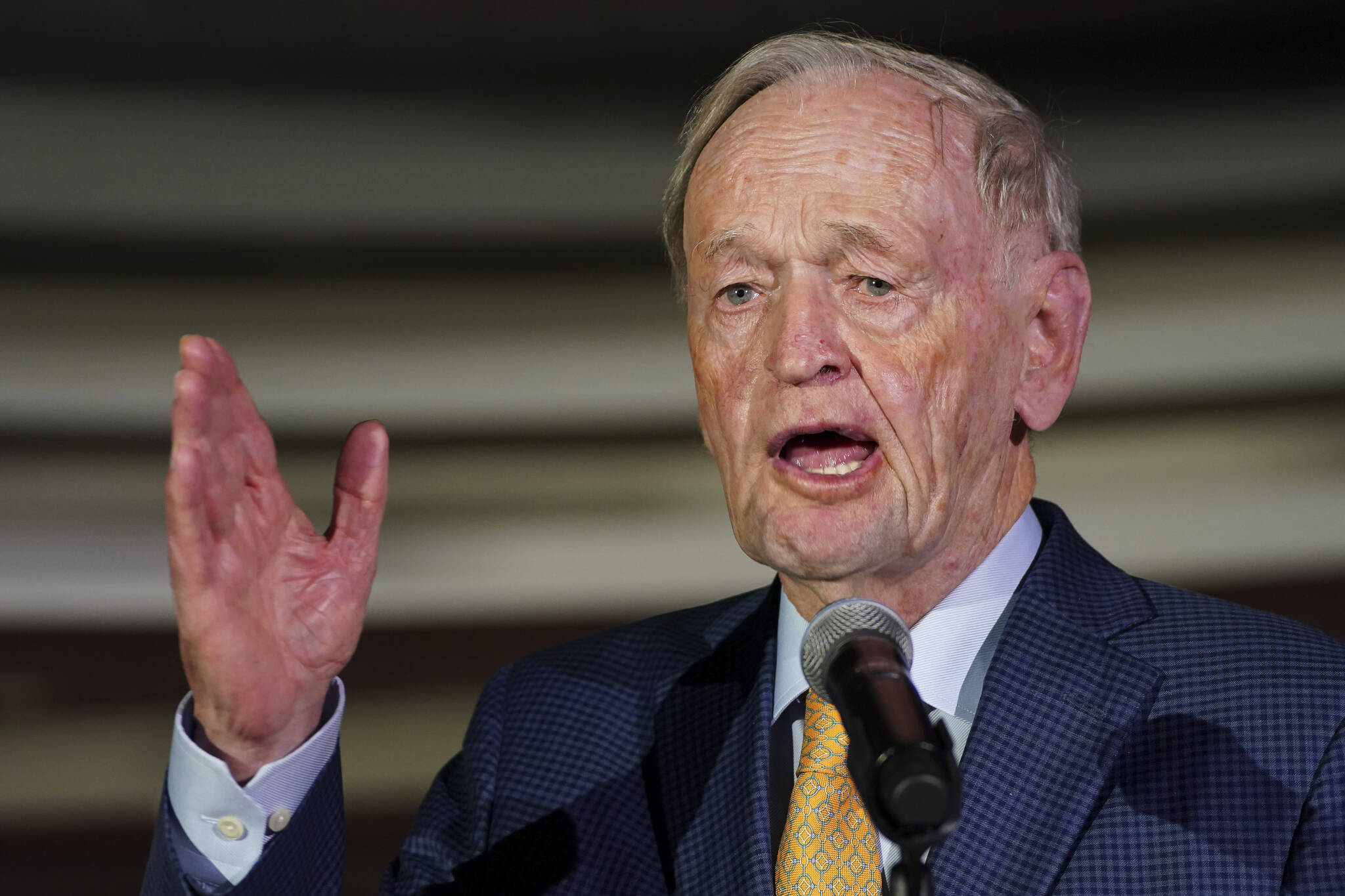Former prime minister Jean Chretien says the abuse of Indigenous children that took place in Canadian residential schools while he was minister of Indian affairs was never brought to his attention at the time.
“This problem was never mentioned to me when I was minister,” Chretien told the popular Quebec TV talk show “Tout le monde en parle,’ Sunday night. “Never.”
Chretien, who was minister of Indian affairs from 1968 to 1974, said he knew residential schools existed and how difficult the experience was, drawing a comparison with his own time in conventional boarding schools.
“I was a boarding student, from age six to 21,” he said. “I had my share of baked beans and oatmeal. For sure, life in boarding school was difficult, extremely difficult.”
Chretien’s comments drew immediate criticism.
The discovery of hundreds of unmarked graves at residential school sites across Canada over the summer revived conversations around the discriminatory system designed to assimilate Indigenous children. The 2015 Truth and Reconciliation Commission report documented the physical and sexual abuse and malnutrition suffered by children in the schools.
At a news conference in Ottawa along with residential schools survivors, New Democrat MP Charlie Angus said he simply doesn’t believe Chretien.
“It is outrageous for Jean Chretien today to try and whitewash his role at St. Anne’s residential school, because he knew,” Angus said, referring to a facility in Fort Albany, Ont. “People reached out to him and begged him to do the right thing, and he ignored them.”
Angus shared on Twitter a handwritten letter that was sent to Chretien by a teacher in 1968, denouncing the conditions at St. Anne’s and referring to the school’s “sterile, rigid, unloving atmosphere.”
“Jean Chretien never responded,” Angus said. “Imagine if he had read that letter and thought, ‘I should do something.’ How many children could have been saved, because some of the worst crimes were being committed at that time?”
The 87-year-old former politician was invited on the show to talk about his new book, published in English as “My Stories, My Times Vol. 2.” He was asked about a passage in which he says he advised the Queen against apologizing to the Maori people of New Zealand for what was done to them by the British colonial administration.
“Your Majesty, if you start, I will have to bring you to Canada and, since we have several hundred Indigenous communities, you will be on your knees for at least two years,” he recalled telling the Queen in the book.
On Sunday, Chretien defended his words by saying excuses are good, but offering a future to Indigenous Peoples is better. “We cannot rewrite history,” Chretien said.
“Terrible things have happened, not only in Canada. In the United States, it’s the army that destroyed the Indigenous Peoples. Here, we had missionaries that were sent, it was less dangerous.”
National Chief RoseAnne Archibald of the Assembly of First Nations raised doubts Monday about the sincerity of Chretien’s comments.
“Chretien says the Queen’s apology would keep her kneeling for two years, but he heard nothing about institutes of assimilation and genocide?” she wrote on Twitter. “Let’s remember that he promoted the 1969 White Paper on assimilation and genocide that launched First Nations activism.”
Innu author Michel Jean, another guest on the talk show, criticized Chretien’s comparison of residential schools to his own boarding school experience.
“Mr. Chretien, with all respect, doesn’t exactly realize what a residential school was,” Jean said. “And he’s not alone.” Jean explained that most people tend to wrongly associate these institutions with schools, where you “teach people how to write.”
While Chretien said he never heard of nor experienced abuse while he was in boarding school, insinuating he “mustn’t have been a pretty boy at that time,” Jean recalled completely different stories from his family.
“Someone in my family, who went to a residential school in Fort George, told me they were sexually assaulted every day, for eight years by a nun,” Jean said.
Chretien repeated throughout Sunday’s interview that he deeply cared about Indigenous issues while he was in power. He pointed to the adoption by him and his wife Aline of an 18-month-old Indigenous boy as evidence of his devotion to the cause.
— By Virginie Ann THE CANADIAN PRESS
RELATED: Trudeau’s comments ‘unfair’ about Church and residential schools: Toronto archbishop

